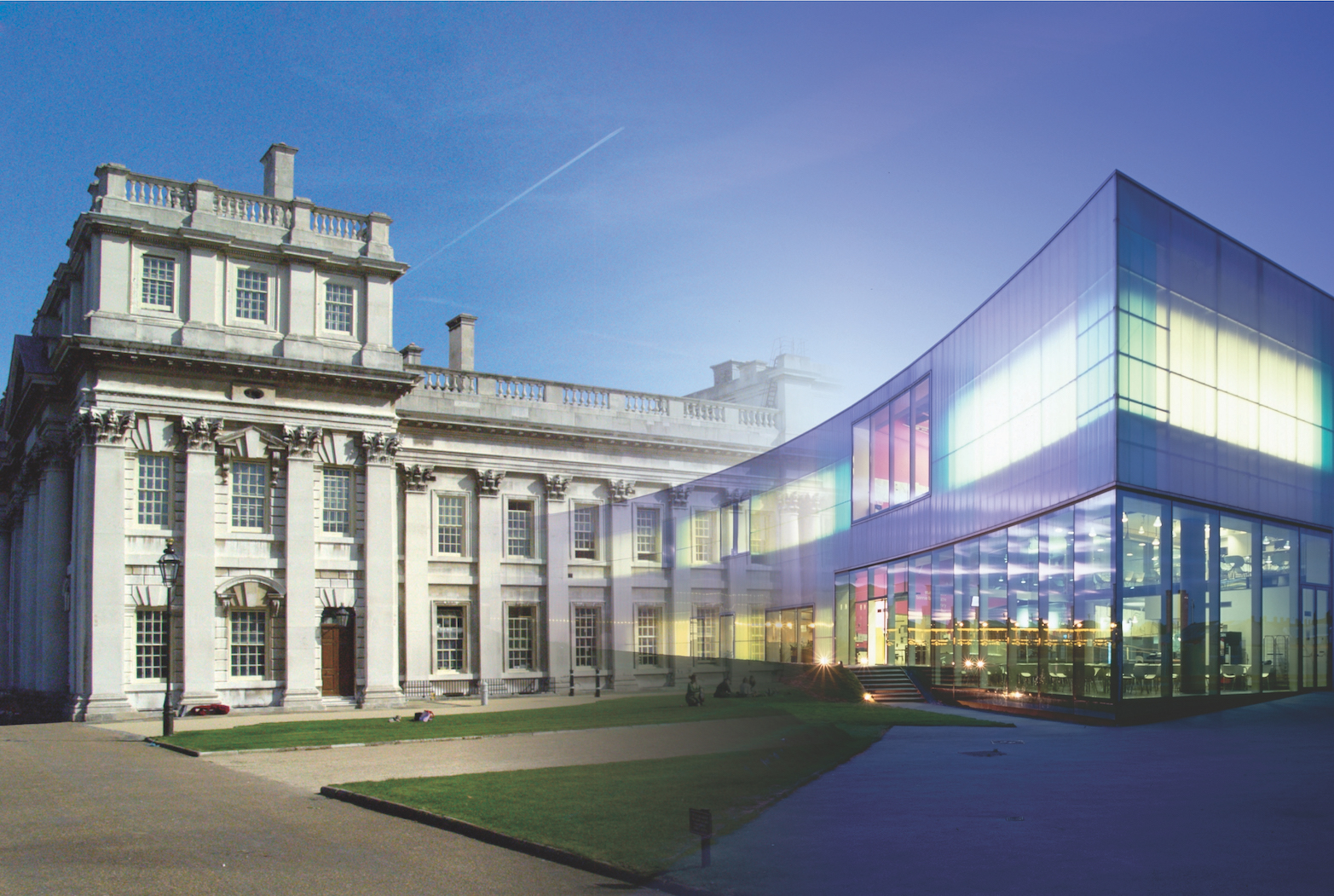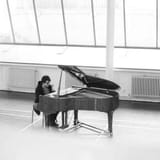Innovation, Inclusion, and International Collaboration: Anthony Bowne’s Trinity Laban Journey
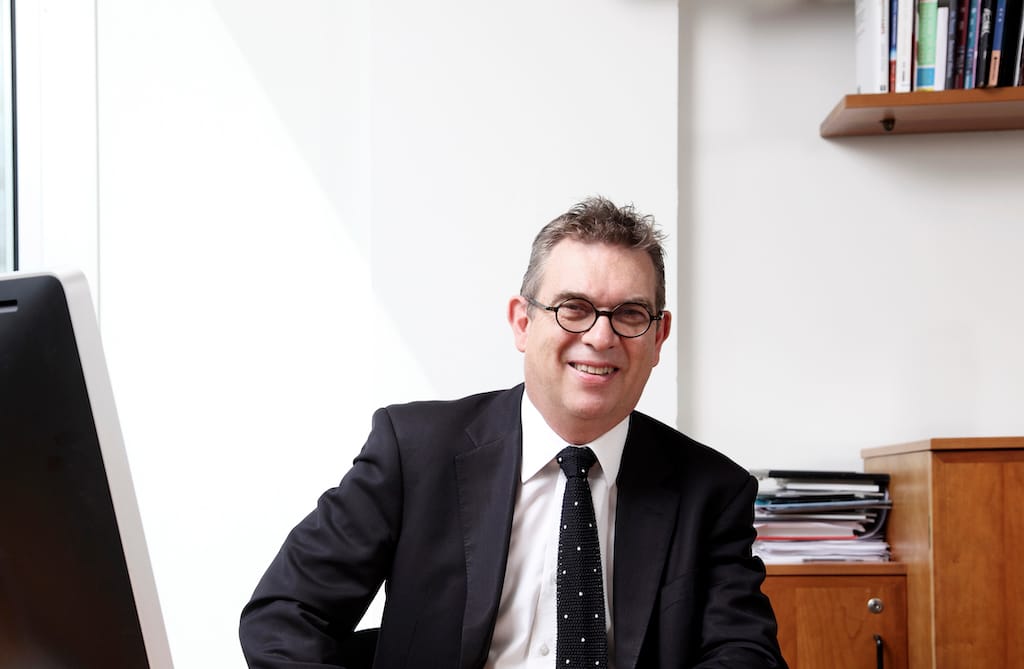
Professor Anthony Bowne’s distinguished career encompasses leadership, education, and creative expertise, notably steering Trinity Laban since 2010. His pivotal role in the merger of Laban and Trinity College of Music formed the largest conservatoire in UK higher education.
Anthony’s diverse background includes dance education, economics, and architecture, with a career spanning from an economist in the motor industry to a position at the Hong Kong Academy for Performing Arts. His creative ventures in lighting design and architecture, exemplified by the Stirling Prize-winning Laban Building, showcase a unique blend of performing arts, economics, and architecture.
Beyond Trinity Laban, Anthony chairs key committees at London Higher, serves as Deputy Chair of Conservatoires UK, and holds influential roles in boards like One Dance UK and the Bonnie Bird Choreography Fund. His commitment to higher education extends to leadership positions in UCAS and a Visiting Chair for Dance at Lasalle College of the Arts in Singapore. Anthony Bowne’s extensive and impactful career continues to shape the landscape of performing arts education and leadership.
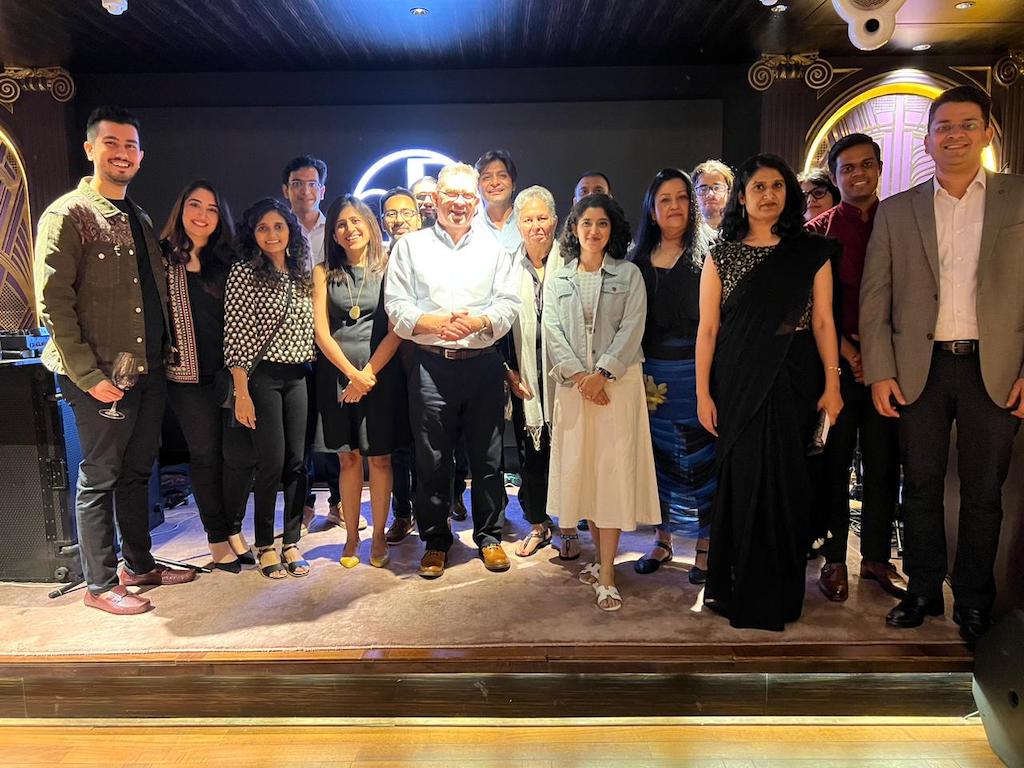
Nikhil Sardana: You have been serving as Principal of Trinity Laban Conservatoire of Music and Dance since 2010. What have been the most significant milestones and achievements during your tenure in this leadership role?
Anthony Bowne: I became the principal of Trinity Laban in 2010, following the merger of Trinity College of Music and Laban, the Contemporary Dance Organisation in 2005. The collaboration stemmed from the physical proximity of their new locations in South East London and a shared vision for the future of performing arts, emphasizing innovation and collaboration.
Upon taking over, the organization faced the challenge of integrating various departments, a process that took about five years. During this period, significant milestones were achieved, including obtaining our own degree-awarding powers in 2016, making us the only dance conservatoire in the UK with such powers.
Another notable achievement was our success in research, participating in the Research Excellence Framework (REF) assessments. In 2014, we ranked ahead of more mature organizations, and in 2021, we improved even further, with 68% of our outputs judged as world-leading or internationally excellent. Importantly, our research impact was recognized as three and four-star, demonstrating its positive influence on society.
Additionally, the Office for Students in the UK, which now regulates us, assessed our eligibility for additional funding. Given the unique challenges faced by conservatoires, this evaluation is crucial every four or five years. Meeting a high bar, we received recognition, reinforcing our commitment to providing high-quality education despite financial constraints.
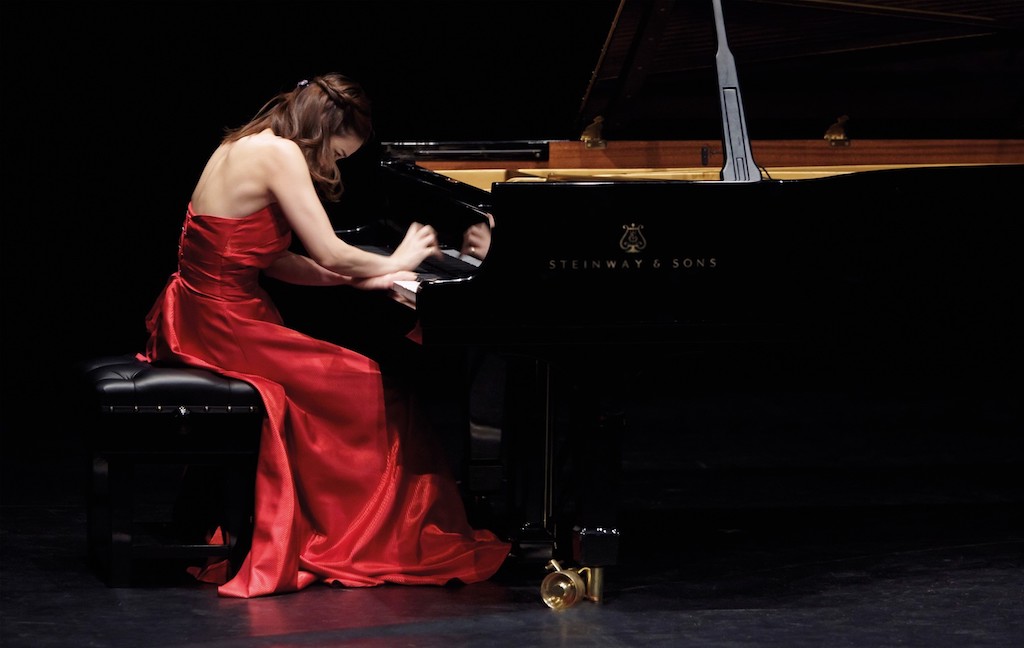
NS: Your career encompasses experiences as an educator, lighting designer for theatre and architecture, and involvement in capital projects. How have these various roles contributed to your leadership of Trinity Laban?
AB: Some aspects of my background are directly relevant to my role. Having trained in the performing arts, I understand the importance of a strong curriculum and skilled instructors. My early career as an economist contributes to my current position as both the principal of a conservatoire and the CEO of an organization. The business experience is valuable for running the organization efficiently, especially in the face of funding challenges.
Understanding strategy is crucial, particularly in an arts organization where individuals join for diverse reasons. Unlike commercial organizations focused on profit, aligning the interests of artists and staff behind a common purpose is essential. My business background helps me appreciate the importance of this alignment, translating strategic plans into a living mission and vision.
I’ve personally benefited from a diverse background and believe that students should experience diversity without hindering the excellence of their training. Craft skills are paramount for artists, but the surrounding diversity of experience is crucial in the rapidly changing world, especially with the influence of AI. Graduates entering a world transformed by recent technological advancements will face decades of different experiences in their professional lives.
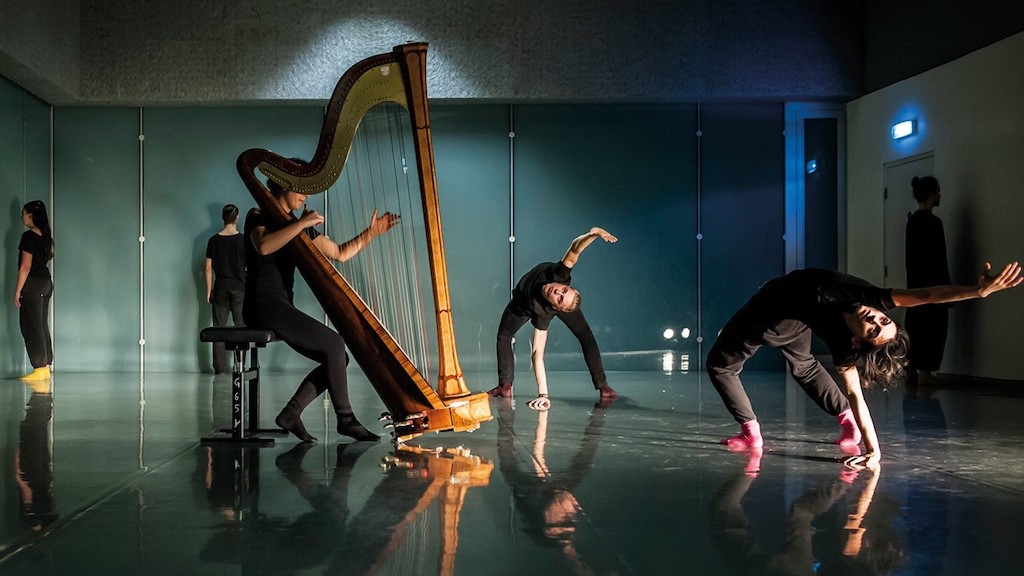
NS: Trinity Laban attracts students and faculty from diverse backgrounds. How does the institution ensure an inclusive and supportive community for all its members?
AB: We have students from all over the world, boasting over 60 nationalities. Proudly situated in Greenwich, London, a city ranked as the world’s number one for students, we find ourselves in a culturally rich environment. My office in the Royal Naval College is just 200 meters away from the prime meridian, symbolizing our commitment to bringing together students from diverse backgrounds.
While we celebrate cultural diversity, we acknowledge the need to enhance social and economic diversity. Our focus is on addressing this issue to ensure that all students entering our community can thrive, regardless of their background. Recognizing that treating everyone equally is not sufficient, we believe that understanding and embracing differences are key to fostering an environment where all students can thrive.
To tackle these challenges, the Equality, Diversity, and Inclusion Board (EDI Board), which I chair, works daily to ensure an inclusive environment for all students to thrive. Trinity Laban stands out among UK conservatoires, surpassing government benchmarks in diversity and inclusion. We actively collaborate with expert organizations such as Black Lives in Music to address the specific concerns of predominantly black domestic students from lower socioeconomic backgrounds.

NS: For aspiring musicians looking to join Trinity Laban Conservatoire of Music and Dance, what advice would you give them to prepare and thrive in their musical journey at the conservatoire?
AB: The first question I would pose to prospective students is whether they believe Trinity Laban is the right fit for them. Acknowledging that students, assuming they meet the technical proficiency required for a conservatoire, have numerous options, I emphasize the importance of alignment with our focus on creativity, innovation, risk-taking, and experimentation. If they resonate with our values and mission, I believe Trinity Laban becomes their natural home for excellence, inclusion, and innovation, where they can thrive.
Distinguishing ourselves from other institutions, our sense of competition is not student versus student but rather the individual challenging themselves to be the best version possible. We foster an environment of peer learning and review, akin to the art school model, where students collaborate, share their work, and receive feedback from peers, encouraging openness and collaboration.
A significant event in our calendar is the CoLab Festival, a two-week period where teaching halts, and the entire community engages in collaborative projects. Celebrating its 10th year in February, this festival involves a diverse mix of musicians, dancers, and students working together on projects that prioritize the process over the product. This experience fosters a mindset of collaboration, experimentation, and embracing failure, crucial for artistic growth. I encourage potential students to consider if this approach excites them, as it aligns with what Trinity Laban has to offer.
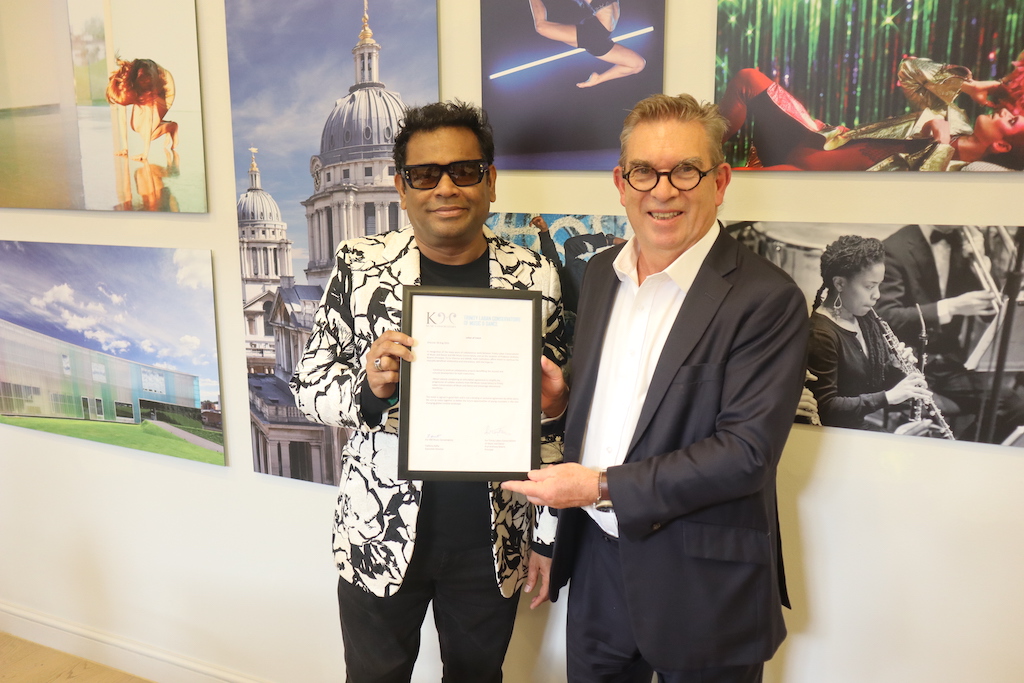
NS: Trinity Laban recently announced that they are exploring a degree transfer partnership with KM Music Conservatory in Chennai. Could you elaborate on the goals and potential impact of this collaboration on both the institutions and their students?
AB: I’m optimistic about the partnership taking shape, although we are still in discussions. The direction we are heading is quite exciting. Both institutions hold a mutual respect for each other’s work, as evidenced by reciprocal visits – I was in Chennai in August last year, and A.R. Rahman visited us in September. We share a focus on excellence and innovation.
KM Music Conservatory, the institution in question, with which we closely collaborate and promote in India, is indeed an exciting place with dedicated individuals. We anticipate a fruitful exchange of knowledge, where both institutions stand to learn from each other.
The envisioned partnership aims to allow students from Chennai to study with us and vice versa. While we are close to finalizing agreements, they are not yet signed. Nonetheless, once established, this collaboration will enable students to experience training in both institutions during their degree programs, offering a fantastic learning opportunity.
